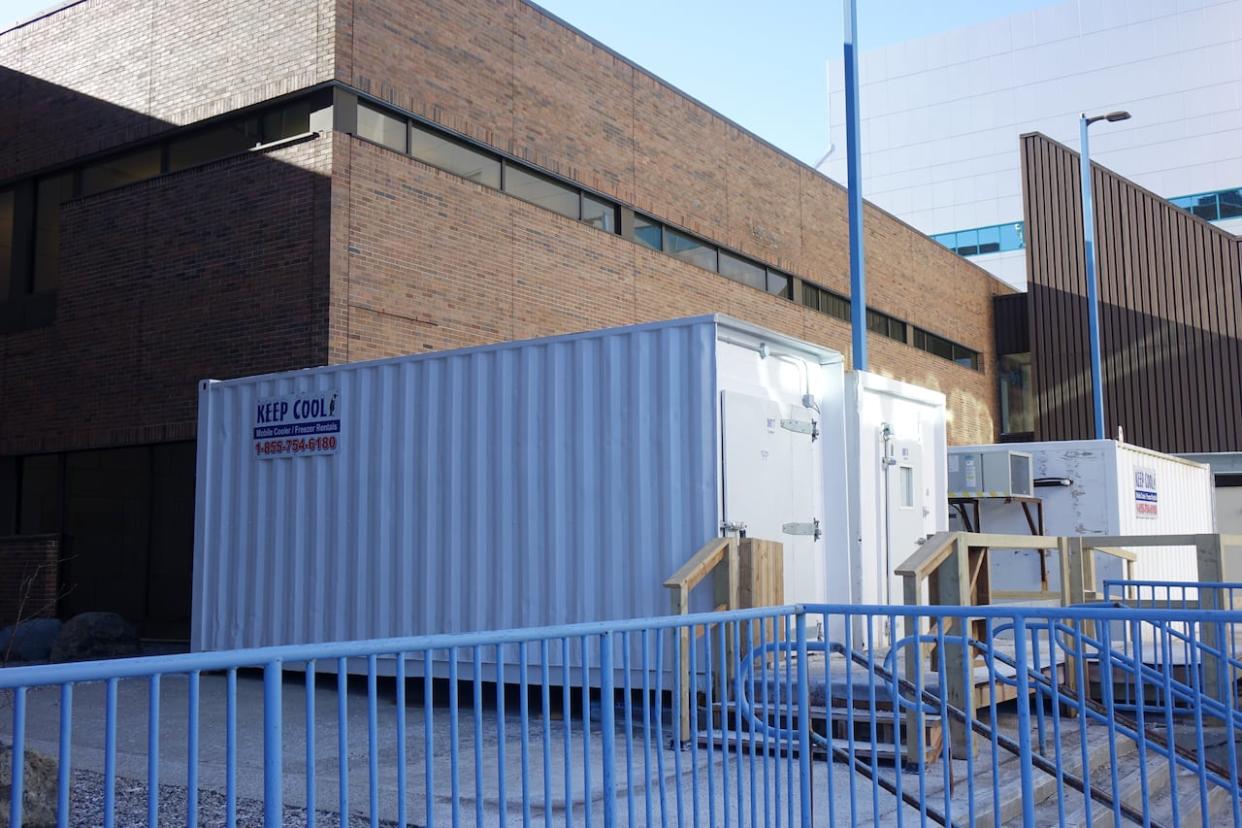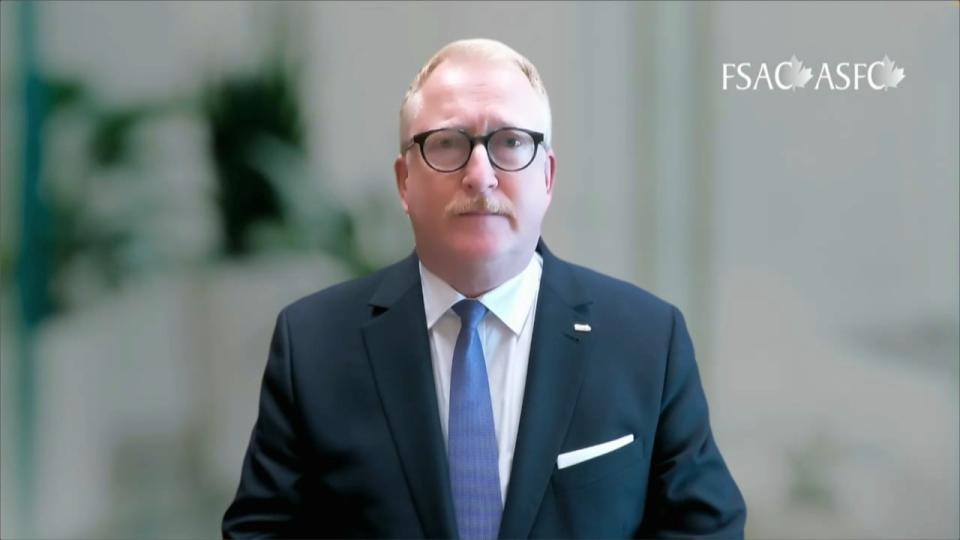Mobile freezers used to store corpses speak volumes about senior supports, advocates say


Freezer units outside of the Health Sciences Centre in St. John's house cadavers when the morgue inside the hospital is full. (Patrick Butler/Radio-Canada)
The complex issue of an overcrowded morgue at a St. John's hospital can be fixed if government policy aligns itself with the rising cost of living, according to some seniors' advocates.
In March, CBC News reported 28 bodies were being stored in freezer units in an alleyway outside the Health Sciences Centre due to a lack of space left inside in the morgue — which doubles as the Office of the Chief Medical Examiner.
The overflow problem — which has since been disclosed in other jurisdictions, including Ontario — has been exacerbated because some bodies remain unclaimed, often because the next of kin are unable to afford funeral services or because some seniors don't have the savings available at the end of life to cover cremation or burial.
"At the end of your life when your income is about $1,600, there's not much you can do to save $4,000 or $6,000 to die in dignity and be buried," Mohamed Abdallah, executive director of the St. John's-based community help group Connections for Seniors, told CBC News in a recent interview.
The province's health authority — Newfoundland and Labrador Health Services — and Health Minister Tom Osborne told CBC News in March that a new storage facility would be built. However, the costs, timeline and location have not been disclosed.
But simply building a bigger facility will not fix a problem that's leading to the overflow to begin with, said Abdallah.
"That's not going to change without the change of policy and support for individuals who need that kind of support," he said.
That means more money for seniors who are on a fixed income and are staring down the same rising cost of living as the current workforce. It also means a possible policy change that will allow community groups to intervene when a client dies.

Mohamed Abdallah, executive director of Connections for Seniors, says seniors need more help from the government and policy changes are needed to assist with funeral services. (Danny Arsenault/CBC)
Connections for Seniors is the next of kin for many of the seniors it works with, Abdallah said.
But the group's involvement with a client who dies ends with being notified by a phone call. The group cannot legally claim the body or handle funeral services. Therefore, the body ends up in long-term storage — the freezer units in the alleyway near bright green dumpsters and a loading dock.
"We have situations that seniors were in the hospital for a few months and we were getting phone calls back and forth, they were looking for someone to take over the burial process and expenses and there was nobody," said Abdallah.
"It is a big concern and I didn't think it was that big. That we have actual freezers outside of the hospital, I was appalled when I heard that."
Current assistance not enough
Families on income support in Newfoundland and Labrador can apply for provincial government assistance to help pay for the funeral services of a family member. Those not on income support can apply for the same funding through a nine-page form assessed by a burial unit team in Gander.
Eligible families can get up to $2,338 to help with cremation or burial costs, but that figure hasn't changed in nearly two decades.
Similarly, on the federal level, eligible family members can receive a one-time payment through the Canada Pension Plan death benefit. That's payable to the estate or other eligible individuals, on behalf of a deceased CPP contributor.
It works out to be about $2,500, but those figures also haven't changed since 1998. Adjusted for inflation, that would be nearly $4,400 today.

Jeff Weafer, president the Funeral Service Association of Canada, says seniors are struggling and the Canada Pension Plan death benefit needs to be updated. (CBC)
Jeff Weafer, president of the national advocacy group Funeral Service Association of Canada, wants that addressed in the next federal budget — expected to be tabled Tuesday.
"We've tried to have a dialogue with the federal government for a number of years, simply advocating for those with less means in our country," Weafer said from his office in Regina.
"That number, the Canada pension death benefit, has been frozen in time for 25 years. It hasn't been indexed."
Before 1998, the CPP death benefit was $3,500, said Weafer, noting that end of life fees today generally range between the lower end of $2,000 up to $12,000 depending on the range of services, which can rival the cost of wedding services.
Adding the CPP benefit and Newfoundland and Labrador's income support fund also might not work.
Weafer said the CPP benefit gets clawed back in some provinces if also using income support funding.
"The conversations the Funeral Service Association of Canada has tried to have over the years with the federal government has fallen on deaf ears, really," he said.
"At the end of the day, and the reason why we're trying to shed light on it, is that seniors need support in our country. It's becoming more and more difficult to make ends meet."
In an emailed statement to CBC News federal Finance Department spokesperson Katherine Cuplinskas said the feds can't unilaterally implement any changes to the CPP since it's a shared responsibility with provincial governments.
A 2019 amendment made to the death benefit made everyone eligible for a flat rate of $2,500. Prior to that, the value of the death benefit was equal to six months of the calculated retirement pension of the person who died and was capped at $2,500.
Download our free CBC News app to sign up for push alerts for CBC Newfoundland and Labrador. Click here to visit our landing page.

